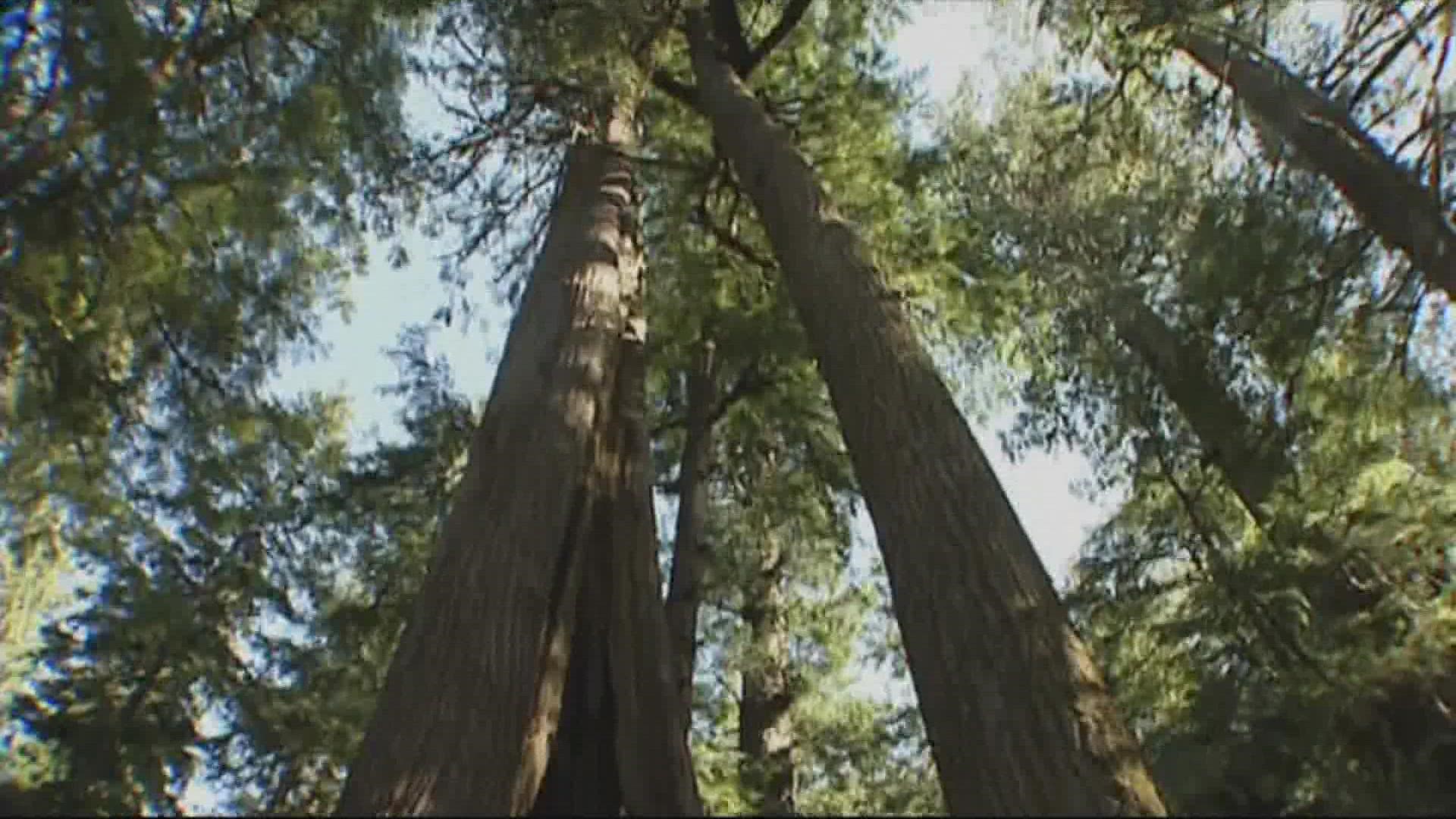CORVALLIS, Ore. — When thinking about ways to curb climate change, reducing the use of fossil fuels and cutting down carbon emissions are likely the first things that come to mind.
Researchers at Oregon State University (OSU) say there's another very important thing that can be done.
"If we don't cut down forest and we reduce our logging, we will be able to sequester carbon dioxide in to the trees," said William Ripple, an ecology professor at OSU.
He has long studied the climate crisis and how the cutting down of carbon sequestering trees is not helping matters.
"The older forest in the west store massive amounts of carbon in their trees and vegetation and soils, so if we can preserve that, we can help mitigate climate change," he said.
Ripple and his colleagues just published a study showing that preserving large sections of forests — especially old-growth forests — is a low cost way of protecting both biodiversity and mitigating climate change.
They call these protected sections Strategic Forest Reserves. Currently, about 18% of the public forest lands in the country are highly protected.
The OSU researchers said there needs to be another 12% of protected forest lands to make a difference. In other words, thousands of acres of land need to be designated as carbon reserves.
"In terms of climate change and greenhouse gas emission, one of the largest sources of emission is through logging forests," said Ripple. "So if we can create strategic reserves where logging is not allowed, it can be a significant benefit to mitigating climate change."
Ripple said it would also help the current administration reach one of its goals.
"President Biden has talked about preserving 30% of the land by 2030 and creating some of these strategic carbon reserves would help get us towards that goal," he said.
The Oregon Forest and Industries Council (OFIC) sent KGW the following statement:
"OFIC has not yet had the time to thoroughly review this study. we can say that some of the reported findings in this study contradict other studies/recommendations, including from the intergovernmental panel on climate change, that support actively managed forests as one of the solutions to climate change."

